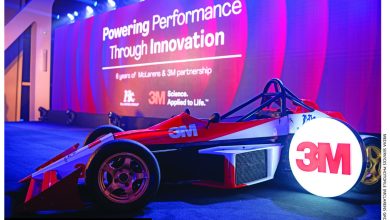INTERNATIONAL CONSTRUCTION CONSORTIUM
 Q: What is the philosophy behind the Oceanfront Condominiums Galle project by International Construction Consortium (ICC)?
Q: What is the philosophy behind the Oceanfront Condominiums Galle project by International Construction Consortium (ICC)?
A: The concept of ‘serviced apartments’ is still very new to Sri Lanka. Serviced apartments offer facilities much like a traditional hotel but with added space, convenience and privacy as in a home.
In 2018, ICC completed and handed over the first beachfront condominium in Sri Lanka – Oceanfront Condominiums Nilaveli. Following this success story, it took another step forward with Oceanfront Galle.
The visual beauty of this project is a specialty, which was inspired by 16th century Dutch architecture. Some of the features include the spiral staircase in the lobby, which depicts a mast of a ship. The arches of the heritage building, courtyard and tunnel with a panoramic view of the ocean gives you a feel of the Dutch Fort.
 Q: In view of the above, could you elaborate on the inspiration drawn from Dutch architecture?
Q: In view of the above, could you elaborate on the inspiration drawn from Dutch architecture?
A: The project is inspired by the majestic Galle Fort – one of the signature sites of southern Sri Lanka – effortlessly translated into the development, providing a sense of pride similar to that of the fortress.
Bringing a colonial flair to modernised architecture, Oceanfront is structured with a distinct design to retain the vibe and feel of the historic city of Galle. The building itself resembles the barricades of the fortress and looks on to the scenic Indian Ocean.
Q: And how does the Galle venture differentiate itself from other condominium projects in Sri Lanka?
A: Considering the architectural elements of Oceanfront Galle, the main building was constructed in a single pane so that all its units have a scenic view of the open sea, adding more value to investors.
Making it one of Sri Lanka’s prominent green buildings, we have incorporated a number of key intelligent features into its unique design – including plot coverage of 46.8 percent of the site, providing easy access to differently abled people, maintaining disability standards across the property, and availability of rainwater harvesting tanks among others.
Furthermore, 66 percent of the building comprises naturally ventilated areas to maximise energy efficiency and personal comfort. There is also an in-house operational waste management system in place to convert over 200 kilogrammes of refuse a day into compost.
Oceanfront Galle was constructed by sourcing approximately 54 percent locally or regionally sourced materials – with an emphasis on using 6.6 percent rapidly renewable materials.
Q: What does ICC’s latest achievement mean for the organisation going forward?
A: The International Construction Consortium emerged as a key driver of building environmentally friendly structures in the country with the Green Building Council of Sri Lanka (GBCSL) awarding Oceanfront Galle ‘Platinum’ status.
Oceanfront Galle was successful in gaining this accolade primarily due to its unique concept, and design and architecture of the residential complex. It ranked at the top of Sri Lanka’s green building list for 2021 with a score of over 70 points, which was achieved by fulfilling the following key aspects of the green rating system: management, sustainable sites, energy, atmosphere, materials, resources, indoor environmental quality, innovation, design process, and social and cultural awareness.
Q: What do you foresee for the construction industry in 2022?
A: Despite 2021 being a challenging year, it was clear that the construction industry showed its resilience once again. In addition, global warming and climate change have emphasised the need for a sharper focus on green and sustainable infrastructure development.
Therefore in 2022, construction companies should expect to see increased opportunities for green building initiatives.
Skilled labour shortages are already plaguing the construction industry, posing a huge challenge for new and existing workers in the field to bring their skills on a par with industry requirements. Engineering firms also need to come up with more innovative, less labour intensive and efficient solutions.
Furthermore, difficulty in sourcing raw materials due to import restrictions has been a major challenge – this is one of the adverse effects of the pandemic.

Q: How do you plan to overcome the challenges faced by the industry and what are ICC’s plans for the future?
A: The International Construction Consortium thrives on being an industry expert and is constantly endeavouring to bring innovative solutions to the table.
In 2022, the company plans to address major obstacles faced by the trade by introducing prefabricated prefinished volumetric construction (PPVC) for the first time in Sri Lanka.
ICC modular building solutions will be introduced to improve productivity by planning more offsite work, thereby saving labour and time, while ensuring work sites are safe, conducive and more sustainable environments. These solutions are ideal for faster construction, which results in achieving higher ROIs.





